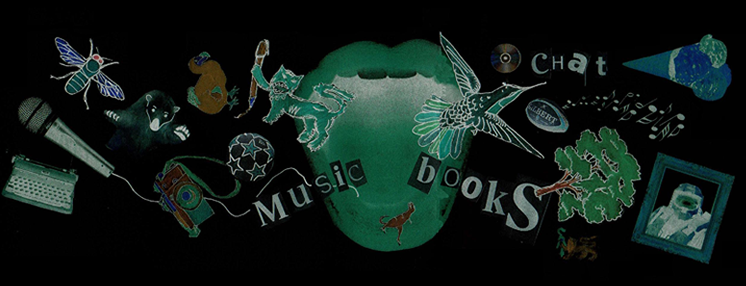By Anna Nguyen
Despite that the narrative voice of ‘The Great Gatsby’ is the observant Nick Carraway, Fitzgerald often deviates from him to show different perspectives of characters or situations which Nick, himself, is not privy to. The earliest example of this is when he lets Jordan Baker explain Daisy’s enviable upbringing and her meeting with Gatsby when he was a soldier, he dedicates a whole chapter to her own perceptions of Daisy and the change of perspective is distinct, swift and sharp contrasting with this passage where the change of narrative voice is subtle, highlighted by the pair of suspension points, rather than a long break in the narrative or a new clean chapter.
The suspension points indicate a change in time but I also think it suggests a subtle slip into a different mindset and a dreamlike world – an unreality where the stars are hit by a tuning fork, or house lights are humming. This deliberate structural device fits very well with Gatsby’s distorted allusions of greatness and re-creation (of the past), and this sense of slipping in and out of reality. And although Nick isn’t a part of this moment, it is still filtered through Nick’s hand, through his memory, and it seems as if he was sitting there watching them as they turned towards each other and the use of the word ‘now’ and ‘here’ really emphasis this, suggesting that it is happening right now, just as Nick describes it. However there is still a sense of detachment and isolation (despite that Nick is everywhere), and this, to me at least, very much implies the idea of watching a film – the outcome of imagination, and a camera – which is referred to subtly in the passage where he juxtaposes the ‘no trees’ and ‘autumn’, reminding me a lot of the beginning of the book where he compares the falling leaves to a moving picture.
There are also many reoccurring motifs in this passage that were always present in the book, but they were never used so frequently in one section. The reoccurring use of white to describe the moonlight and Daisy’s face is very significant in this passage because not only does it refer to that glossiness that is her elitist upbringing or her own home, it also refers to the white flannels that Gatsby wears when he meets her after five years and to the opulence that was associated with money. Fitzgerald is very faithful to his colour scheme, and it emphasises how the scene should be read and should be imagined by the reader and the constant use of colours like white and gold, or yellow does not only create a defined situation and a defined definition for things – such as gold would evoke Gatsby’s glamourous parties, or a robin’s blue egg would evoke images of the messenger’s flannels – it inevitably does the same job as describing things as black and white and not grey. There is a set order for things and Gatsby’s moment with ‘The Grail’ is defined by the white moonlight, and because it is irrespective of other colours other than white (like Daisy’s face is just white) there is an unreality – nothing is as set out or defined like black and white, or indeed, gold or white.
Another motif used by Fitzgerald is the stars and already the mention of the stars bustling and stirring evoke the ideas of the sense of imagination and a perfected memory – memory that has been recalled over and over by Gatsby. The fact that it’s been hit by a tuning fork implies it can be reached (otherwise it can’t be hit), and if it makes a sound, it can be heard by Gatsby – this suggests the whole idea of God and creation. Though there are subtle religious (eyes of Dr. J. Eckleburg as the eyes of God) references throughout the book, it is purposefully woven into the passage by Fitzgerald. The ladder that is formed by Gatsby so that he could ‘suck on the pap of life’ strengthens the idea that idea of being a superior being like when he tells Nick that he can recreate the past, and to be able to climb a ladder alone to a secret place, then he would be considered above the very people that he, or James Gatz, once was – a farmer’s son, and a janitor – and the idea that he reaches this place alone, shows how Daisy, ‘this girl’ (which is deliberately used to connote a certain type of girl, and if she’s a girl, then Gatsby must still be a boy) , is an object that represents money, and in many ways the American dream.
In the paragraph ‘his heart beat faster…’ the use of the pronoun ‘he’ and not Gatsby, juxtaposed with the ‘mind of God’ really suggests how Nick perceives Gatsby, and how Gatsby perceives himself with the disillusions of the extent of his powers to recreate the past. Fitzgerald also uses the pronoun ‘he’ more often (and obliterates ‘Gatsby’) as the passage moves from setting the scene to when he kisses her, and I think that it represents a transition to a omnipotent being that Gatsby believes he is. ‘…Wed his unutterable visions to her perishable breath’ is very similar to the metaphor of the rock found on the foundations of a fairy wing, and Fitzgerald doesn’t explicitly say that James Gatz’s dreams are attainable through Daisy, but this metaphor does. Gatsby is not Gatsby – the idea – unless he has Daisy (and therefore it brings up the question of whether he loves her or not). She is the epitome of the reality that is his imagination or his platonic conception of himself.
When the narrative voice shifts back to Nick (without the suspension points) he becomes judgmental, no longer just an observer, when he describes Gatsby’s sentimentality as appalling, which is very reminiscent of the ‘unaffected scorn’ Nick claims to feel for him, but this shifting as a device is very important to the passage, Fitzgerald does this not only to present to the reader Nick’s own evaluative thoughts but also to delve into an emotion, that is still eating at Gatsby, still haunting in his shadows, that was once present in Nick, probably as a boy – ‘I was reminded of something’. When Nick tries to remember this feeling he fails to get it out, and it was ‘incommunicable’ forever. Gatsby’s own experience evokes Nick’s own memories, and whereas before they were two polarised beings in the world of the Buchannans’, the Wilsons’, and the uninvited party goers, here they become very similar. That sense of losing a dream is probably what Nick has ‘broken’ remnants of, he became a bonds man, but did he want to be a bonds man? Or it is because he just did what was accessible or sensible to him? For Gatsby he achieved the glamour that he had dreamt of as a seventeen-year-old boy and he is still pursuing that dream of attainting the ‘Grail’ literally to his death. Rather than boyish dreams, I think that it can also be extended to the American dream and its superficiality. Nick describes it as a broken rhythm, probably a song that was once glorious and one he heard a long time ago. The American dream promised freedom and in its pursuit, like Gatsby, you became the new rich with money and whilst Nick saw the reality of it, Gatsby didn’t.
WE'RE CHANGING...
Let us know what you want our new site to be like, what it should be called, what it should have on it.
Subscribe to:
Post Comments (Atom)



No comments:
Post a Comment